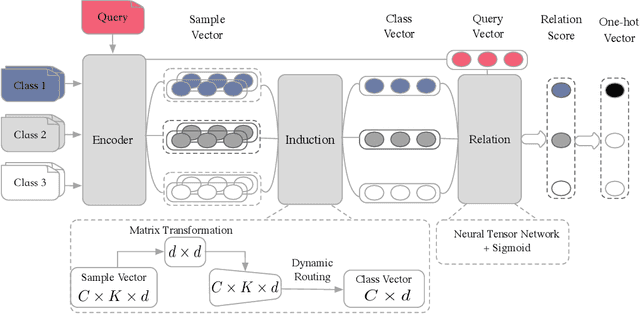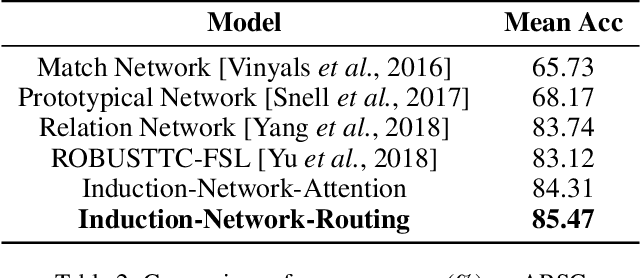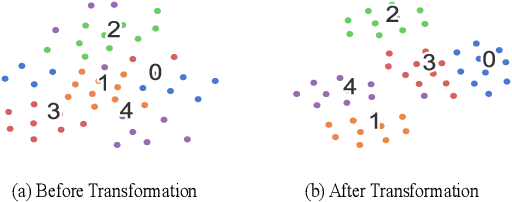Few-Shot Text Classification with Induction Network
Paper and Code
Feb 27, 2019



Text classification tends to struggle when data is deficient or when it needs to adapt to unseen classes. In such challenging scenarios, recent studies often use meta learning to simulate the few-shot task, in which new queries are compared to a small support set on a sample-wise level. However, this sample-wise comparison may be severely disturbed by the various expressions in the same class. Therefore, we should be able to learn a general representation of each class in the support set and then compare it to new queries. In this paper, we propose a novel Induction Network to learn such generalized class-wise representations, innovatively combining the dynamic routing algorithm with the typical meta learning framework. In this way, our model is able to induce from particularity to university, which is a more human-like learning approach. We evaluate our model on a well-studied sentiment classification dataset (English) and a real-world dialogue intent classification dataset (Chinese). Experiment results show that, on both datasets, our model significantly outperforms existing state-of-the-art models and improves the average accuracy by more than 3%, which proves the effectiveness of class-wise generalization in few-shot text classification.
 Add to Chrome
Add to Chrome Add to Firefox
Add to Firefox Add to Edge
Add to Edge